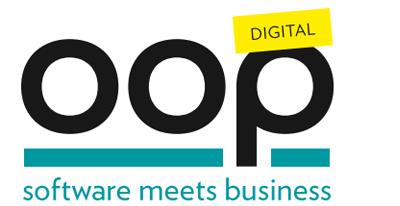- Deutsch
- Contact
- Newsletter

Conference Program
Please note:
On this site, there is only displayed the English speaking sessions of the OOP 2022 Digital. You can find all conference sessions, including the German speaking ones, here.
The times given in the conference program of OOP 2022 Digital correspond to Central European Time (CET).
By clicking on "EVENT MERKEN" within the lecture descriptions you can arrange your own schedule. You can view your schedule at any time using the icon in the upper right corner.
Thema: Talks with Limited Attendance
- Montag
31.01. - Freitag
04.02.
The Scrum Guide lays out the rules of the game called Scrum. Beyond it, there are known "secrets" necessary to making Scrum work—but most teams never get to them.
Scrum experts have been working for years to collect and write these nuggets down as patterns. The seminar is based on the book "A Scrum Book" — a de facto standard for Scrum, and a definitive exposition of the why behind everything Scrum. You'll learn about Scrum at a deeper level than you probably reached during your CSM, PSM, or…
Today we must deal with shorter time-to-market, increasing complexity and more agility while keeping quality and other key system properties high.
To address these challenges the right timing in testing is critical but often not explicitly tackled. Therefore, in this interactive tutorial we reflect on our current approach on timing in testing, investigate and discuss needed strategies, tactics, and practices in different areas, and share experiences and lessons learned to improve timing in…
Security is an important topic, especially when developing software. But it is seen as complex and is holding everyone back, often put off until the end and delegated to an external person or group.
To be effective security needs to be a continuous part of the development process and to involve the whole team.
Security games can help to achieve this. They involve the whole team and facilitate the learning and application of security principles. They offer a way to integrate expert knowledge and…
Do you know that some forecasts project that in 2030 IT will account for 21% of all energy consumption? So, if we do not change the way we implement software, we will contribute to the increase in the carbon footprint. This means it is about time to take another look at how agile development can help decrease energy consumption.
In this workshop, we'll explore how the agile principles can guide us to more sustainability, and we'll provide you with concrete ideas for increasing sustainability in…
Despite being hyped in the Agile community because of Google discovering its importance, psychological safety alone is not enough. It is a necessary but not sufficient precondition for successful intelligent and high-performing teams. But what else is needed? This workshop will present additional research as well as tools used by psychologists that boost team intelligence and performance and explore the potential for their use in their teams. Participants will have the opportunity to try some…
If we want to make sustainable design decisions for our architecture that are embraced by everyone, the most effective way is to do this collaboratively. It is hard to do because we need to deal with all sorts of group dynamics that cause people to stop sharing what they want, ending up in resistance behaviour from sarcastic jokes, to stopped communication. So how can we make collaborative design decisions better? Join us in this hands-on workshop where we explore different models of decision…
